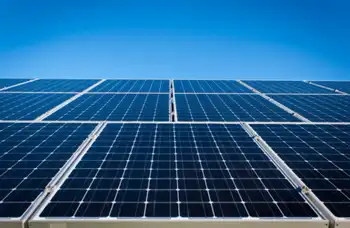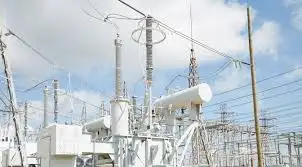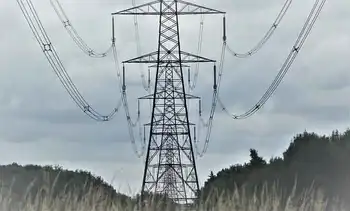Duke Energy to Buy Westcoast Energy in Deal Worth $8.5 Billion US
Westcoast Energy Inc. - VANCOUVER (CP) - , Canada's second-largest natural gas pipeline company, is to be taken over by Duke Energy Corp., the No. 2 gas marketer in the United States, in a friendly deal valued at $8.5 billion US.
The combination would create a massive North American gas gatherer and distributor, with plans to deliver gas from the Canadian North and Alaska to U.S. markets by the end of the decade. Under the deal announced Thursday evening and supported by the boards of both companies, Duke Energy will exchange shares valued at $4.5 billion US for all of Westcoast.
Duke also will assume $4 billion US in Westcoast debt.
Duke Energy (NYSE:DUK), headquartered in Charlotte, N.C, said the purchase - half in cash and half in stock - values Westcoast at $43.80 Cdn per share.
This is a 15 per cent premium over Thursday's closing price of $38.15 Cdn for Vancouver-based Westcoast (TSE:W) on the Toronto Stock Exchange.
"The bid represents a significant premium to our recent share price at a time when Westcoast Energy shares are trading at record highs, and it offers current Westcoast shareholders an opportunity to participate in the future growth prospects of Duke Energy, a leading multinational energy powerhouse," stated Westcoast chairman and CEO Michael Phelps.
Two of the most promising new supplies of natural gas in North America are on the Scotian shelf off Canada's Atlantic coast and in new areas of Western Canada and the Far North, Phelps said.
"Westcoast is the only pipeline that serves those news basins and connect them to markets."
Fred Fowler, president of Duke Energy Gas Transmission, a Houston subsidiary of Duke Energy, said the company expects 70 per cent of new gas over the next decade will come from Canada and Alaska.
"Increasingly, Canada is a key source for incremental natural gas supply and this acquisition will enhance Duke Energy's ability to connect rapidly expanding supply with fast-growing markets in both Canada and the United States," said Fowler.
Duke and Westcoast each own 37.5 per cent of the Maritimes & Northeast pipeline that carries offshore Sable Island gas to the Maritimes and the United States, and Fowler said Duke intends to double the line's capacity by the winter of 2004.
He expects supplies from the Northwest Territories to come on stream in mid-decade and Alaskan gas to arrive by the end of the decade.
"So we think this positions us for a decade of very good, large infrastructure investment opportunities."
Westcoast Energy's gas transmission assets - its main business - will be operated by Duke Energy Gas Transmission (DEGT). Westcoast's energy services and international businesses will be run by Duke's energy services units.
"I'm somewhat sad that an icon of the B.C. energy community is changing hands," said David Austin, an energy lawyer and analyst based in Vancouver.
"Duke obviously has an advantage in relation to acquiring a Canadian company such as Westcoast," Austin observed, "because it has a higher-value U.S. dollar to deal with, and in the U.S. with respect to its regulated assets it's allowed to earn a higher rate of return than similar companies in Canada."
DEGT's Canadian operations will be headquartered in Vancouver, Duke's Fowler said, adding: "Westcoast Energy has been a leading corporate citizen in Canada and we expect to continue that tradition."
He said it's "a little bit early" to detail the impact on Westcoast's workforce of 6,000 and Duke's 23,000 employees, though there will likely be some cutting of redundant corporate jobs, with less impact on operations personnel.
Westcoast's Phelps, who will join the Duke board, added that "while we are always looking for efficiencies, we are looking at revenue enhancement more than anything else."
The deal is a good one for Westcoast shareholders, said Jim Bartlett, an analyst at Odlum Brown in Vancouver.
"Westcoast has indicated that their growth opportunities in the future are not as good as they were in the past, and Duke seems to be indicating that it's got the potential to grow at the rate of 10 to 15 per cent a year for several years," Bartlett said.
"One would think that Duke would be a better investment than Westcoast."
Bartlett added that "I think it's more or less a done deal," and he sees no prospect of a competing bid: "Not in this market."
Both companies said they expect natural gas prices will rise above their current levels but tend to remain below the peaks recorded last winter.
"We don't think $10 (US per 1,000 cubic feet) gas is in anybody's long-term interest, nor do we think $2 gas is anybody's long-term interest," Phelps said.
"We have billions of dollars in assets tied up in the bet that gas has found equilibrium level."
Odlum Brown's Bartlett said the transaction might sway U.S. opinion in favour of the Alaska Highway pipeline option through the Yukon - proposed by Westcoast and TransCanada PipeLines - to transport gas from the north coast of Alaska and the Mackenzie Delta.
Beyond the political dynamics of having a major U.S. utility company as a sponsor of the Canadian route, "it's a size consideration - that really is a huge project," Bartlett said.
He added that he sees no new foreign-ownership issue for Canadian public policy in the deal - the latest in a series of American takeovers in the Canadian energy industry.
"If we're going to sell the oil and gas assets, I don't see what the difference is if we sell the transportation companies."
British Columbia Energy Minister Richard Neufeld said the deal is good for the province's energy industry and reflects corporate confidence in the provincial Liberal government.
"Pipeline systems are a lot more continental today than they used to be because of where we ship our natural gas to," Neufeld said.
"It also shows some good feelings from the industry to invest in British Columbia again. That hasn't been something that's happened in the last decade and companies are starting to come back and see they can invest in British Columbia."
After the acquisition of Westcoast, expected to close in the first quarter of next year, Duke will have 94,500 kilometres of gas gathering pipeline, 30,400 kilometres of transmission pipeline, 241 billion cubic feet of gas storage and 26,500 kilometres of distribution line.
Westcoast Energy Inc. Business: Canada's second-biggest natural gas pipeline company, with a $15-billion network of gas gathering, processing, transmission, storage and distribution assets. In addition to wholly owned pipelines in B.C., Ontario and New York, Westcoast co-owns Foothills Pipelines in Alberta with TransCanada PipeLines, and owns 37.5 per cent of the Maritimes & Northeast pipeline which delivers offshore Sable Island gas to the Maritimes and the United States. Owns the Union Gas and Centra Gas distribution companies, with about 1.2 million Canadian customers. Also active in electricity generation and energy services. Finances: Net income $103 million Cdn on revenue of $2 billion in most recent quarter. Profit in 2000 was $388 million on revenue of $9.1 billion. Workforce: 6,000.
Duke Energy Corp. Business: Operates pipelines delivering 12 per cent of the natural gas consumed in the United States, and is one of the top 10 U.S. generators and marketers of electricity. Canadian assets include 37.5 per cent of the Maritimes & Northeast pipeline, plus energy services and 20 per cent of Canadian 88 Energy. Worldwide assets valued at $58 billion US; ranked 17th on Fortune's list of American companies in 2000. Head office: Charlotte, N.C. Finances: Net income $419 million US on revenue of $15.6 billion in most recent quarter. Revenue in 2000 was $49 billion US. Employees: 23,000. Comment: "Duke sees that the United States needs gas over the long run, assuming a normal economic situation, and that the gas is going to have to come from Canada - the Western Canadian sedimentary basin, offshore Nova Scotia, and the north coast of Alaska and the Mackenzie Delta." - Jim Bartlett, an energy industry analyst at Odlum Brown in Vancouver.
Related News

Energy Department Announces 20 New Competitors for the American-Made Solar Prize
WASHINGTON - The U.S. Department of Energy (DOE) announced the 20 competitors who have been invited to advance to the next phase of the American-Made Solar Prize Round 3, a competition designed to incentivize the nation’s entrepreneurs to strengthen American leadership in solar energy innovation and domestic manufacturing.
The American-Made Solar Prize is designed to help more American entrepreneurs thrive in the competitive global energy market. Each round of the prize brings new technologies to pre-commercial readiness in less than a year, ensuring new ideas enter the marketplace. As part of the competition, teams will have access to a network of…




